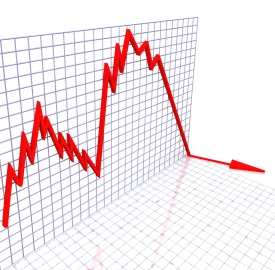
Interest rates are creeping up, confidence in the dollar is waning and real estate transaction volume keeps slipping despite an abundance of investment capital.
Combine those factors and you have a recipe for a looming recession, according to economist Hugh Kelly.
“It’s not just about preparing ourselves for a slowdown three, four years down the road, but also for a contraction,” said Hugh Kelly, principal of Hugh Kelly Real Estate Economics, at CREW-Miami’s 2018 Economic Outlook luncheon in Miami on Wednesday. “Now is the time to begin thinking about how do you prosper in economic contracting conditions.”
Kelly offered a sobering overview of trends that he believes mark the downside of the current cycle.
“Ambitious projections of growth are not going to be achieved,” Kelly said. “I see another year in declining volume in the real estate business.”
The chances of the country’s economic recovery, the second longest in the nation’s history, continuing into next year are not looking good, Kelly noted. “Keeping it going into the summer of 2019, I think, is a riskier bet,” he said. “Confidence in the U.S. dollar and in our ability to sustain the amount of growth we have been seeing is slipping. These are reasons we should begin to prepare for the end of the cycle.”
An alarming uptick in natural disasters is another factor that will hurt the real estate industry in the next decade, Kelly said, which should raise alarms in hurricane-prone South Florida. In the 1980s, there were 43 natural catastrophes on an annual basis around the world, Kelly said. Since 2011, the number has jumped to 82 per year.
That means home insurance premiums are likely to go up and could have a negative impact on residential home sales. Storms, wildfires and floods resulted in nearly $300 billion in insurance claims last year, Kelly said.
“There are only two ways for insurers to pay for increasing costs,” he added. “Either increase premiums or dip into investment returns. When you have $289 billion in claims, that is going to be costly for everybody.”
Source: The Real Deal















